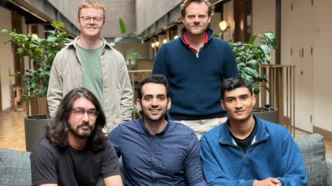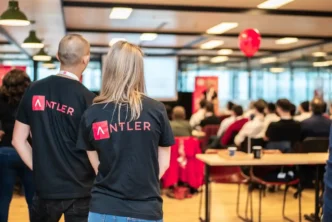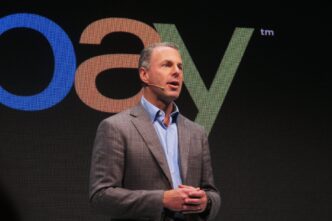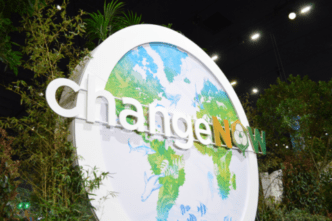Just months ago, 11x, an AI-powered sales automation startup, looked unstoppable. The Company backed by heavyweights like Benchmark and Andreessen Horowitz, was hailed as a rising star in the booming AI sales development space. But behind the scenes, the cracks were already forming — and now, the 11x AI sales startup controversy is unfolding fast.
Sources close to the company — including investors, employees, and ex-staff — say 11x is battling financial and operational challenges largely of its own making. Some insiders told TechCrunch that tensions have run so high. Even lead investor Andreessen Horowitz allegedly considered legal action — though a16z denies this.
At the center of it all is 11x’s flagship product: an AI-powered bot designed to handle outbound sales tasks like prospecting, messaging, and scheduling. Launched in 2022 by founder Hasan Sukkar, 11x rocketed to nearly $10 million in annual recurring revenue (ARR) within two years, secured a $24 million Series A led by Benchmark, and followed that with a $50 million Series B from a16z.
But as the dust settled, customer dissatisfaction and troubling internal practices began surfacing.
One of the most damaging revelations? Several high-profile companies — whose logos appeared prominently on 11x’s website — say they were never customers. ZoomInfo, for instance, revealed it ran a brief trial but never signed on. Yet 11x showcased ZoomInfo as a client for months, even after repeated warnings.
“We did not give them permission to use our logo,” ZoomInfo confirmed. Their legal team is now threatening action, citing deceptive trade practices, trademark infringement, and false advertising.
Similarly, Airtable denied being a customer, despite 11x listing them publicly. Airtable ran a short trial but walked away, calling the product unfit for their business. Another unnamed company shared the same story.
While 11x claims it removed inaccurate customer mentions once notified, the damage was done. Only a few firms, like Pleo and Rho, verified they actually use the product.
Adding to the controversy, former employees accused 11x of inflating its ARR by counting revenue from customers still within trial phases — or who had already canceled.
The tactic? 11x pushed prospects into signing one-year contracts with “break clauses” after three months. Internally, though, the startup counted the full contract value as ARR, even if customers exited early.
Insiders described churn rates as “brutal” — as high as 70-80% — meaning most clients never made it past their trial periods. Despite this, 11x reportedly claimed inflated ARR figures, painting a rosier growth story for investors.
“They absolutely massaged the numbers,” one former employee admitted. Another revealed that while 11x touted $14 million ARR, the real figure — after accounting for canceled trials — was closer to $3 million.
While 11x defends using contracted ARR (CARR) and says investors were aware of its metrics, industry VCs note that best practices demand clear disclosure of potential opt-outs and churn rates.
The heart of 11x’s struggle may lie in its product — which many customers and employees say didn’t live up to the hype.
Some clients expected to replace entire sales teams, banking on the AI’s promises. But results disappointed. One prospect said automated emails barely translated into booked meetings. Others complained about product failures, “hallucinations” in AI-generated messages, or the platform failing to load.
Even a VC conducting due diligence reported that the tech underperformed during testing, with customers saying it failed to generate viable leads over time.
Internally, engineers described a buggy product requiring manual checks that defeated the purpose of automation. Worse, billing issues arose — one client claimed they were charged twice for a three-month trial, raising suspicions about the company’s practices.
Behind closed doors, the situation appeared equally grim. Employees described a toxic work environment driven by founder Hasan Sukkar’s relentless demands.
Staff were expected to work 60+ hours a week, including weekends and holidays. Slack messages obtained by TechCrunch show Sukkar questioning team members’ whereabouts late into the night, sometimes as late as 3 a.m.
“He doesn’t believe in holidays,” one current employee said. Others claimed Sukkar publicly criticized workers in Slack channels, creating a culture of fear.
As a result, early team members dropped out — with only Sukkar remaining from the original launch photo. Some former employees say they’re still waiting on back pay months after leaving. One current worker joked that quitting usually happens right after payday to avoid payment disputes.
Today, 11x says its retention has improved and that recent changes have strengthened the product. It also defends its contracts and metrics, insisting investors were fully briefed during due diligence.
Still, with multiple companies threatening legal action and employees describing a high-stress, unsustainable culture, the 11x AI sales startup controversy casts a long shadow.
The company’s rapid rise and messy fallout serve as a cautionary tale in the hyper-competitive AI sales space. In an industry chasing massive growth, the line between hype and reality can blur — but eventually, the truth catches up.













